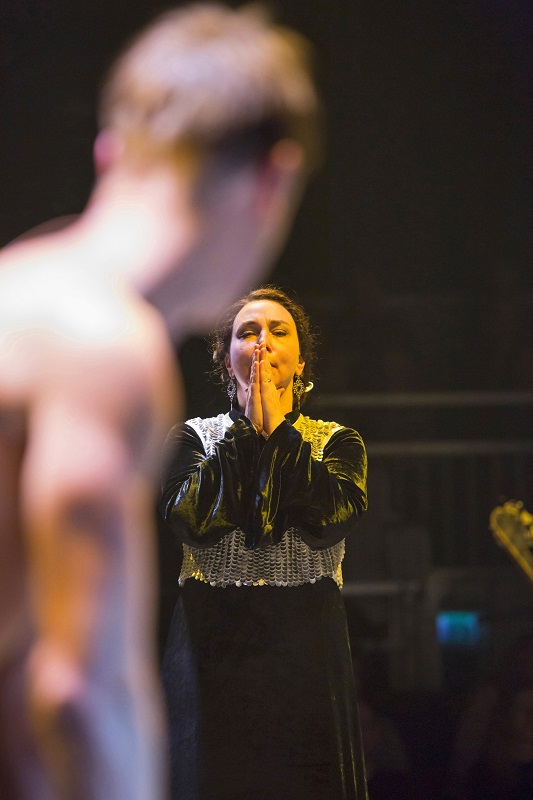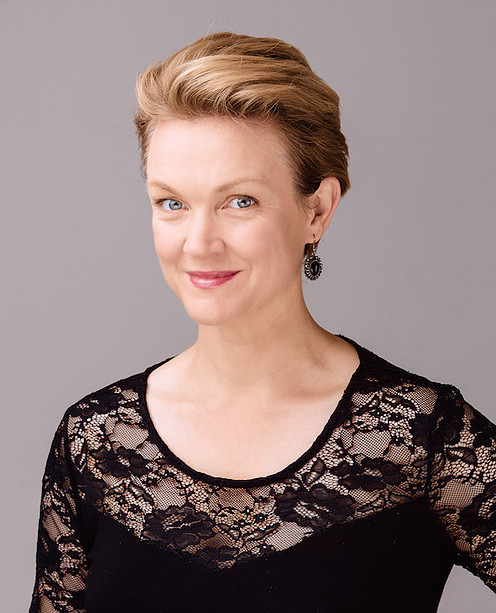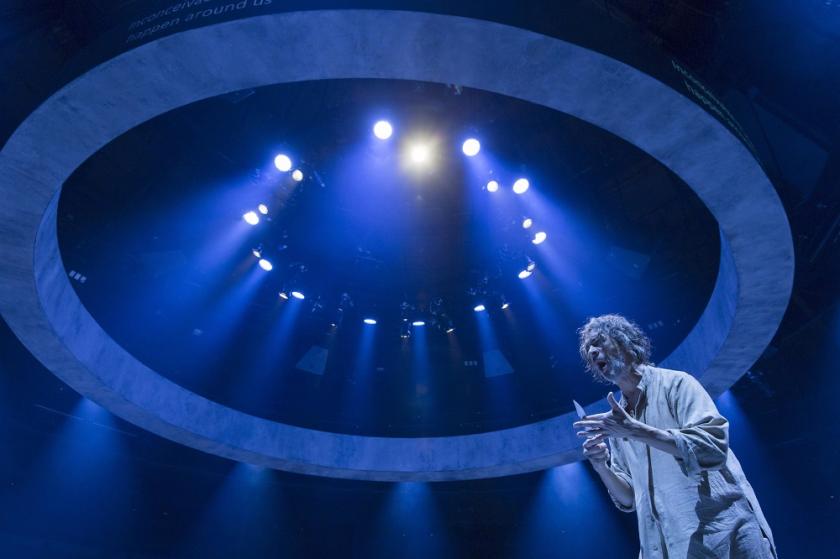The power of music solves every problem, at least when as bewitchingly performed as it was here. With the great mezzo Christine Rice voiceless for at least a night, and rising star Caitlin Hulcup singing for her from the midst of the instruments in the pit right at the centre of the Roundhouse, how could faithful Penelope's final acceptance of her long-lost husband Ulysses (Roderick Williams) achieve transcendence? Yet it was moving to tears, thanks to the exquisite sensitivities of three very special performers and Christian Curnyn's Early Opera Company. Not even a scattergun production's last gimmick, denying the married couple a final haven as Ulysses slides away from his wife on the outer ring-revolve, could destroy that.
A peerless ensemble of singers, fortunately, knows how to use the special communication that the Roundhouse encourages – and certainly there was no problem with the two revolves dead-centre, though I’m not sure that the pit needed to circulate, however slowly, clockwise against the main acting-space. The nature of the beast meant that voices needed to be amplified – by Sound Intermedia, far more obtrusively than in their more discreet work on the Royal Opera’s first experiment here with Monteverdi’s Orfeo, a different set-up with the audience in Greek-amphitheatre formation rather than the full circle (set design here by Hyemi Shin, lighting Paule Constable). The result was that vocal timbres could be flattened, losing the bloom at times. Yet every word could be heard, every nuance of a very grown-up text meditating on time, transience, good and evil, superbly set by Monteverdi and well rendered in Christopher Cowell’s typically eloquent translation, caught without the need for the supertitles.
 After surprisingly good work on Opera North’s The Snow Maiden, director John Fulljames returned to a melee as before. Sure, the Iliad mythology can take costume gestures from all periods, but it needs a core identity and a concentration on the many one-to-ones where the body language between characters is more important than what’s going on around them. Even sympathetic stage performers like the Jette Parker Young Artist Programme’s wonderful young soprano Francesca Chiejina, so good in last summer’s showcase, and Andrew Tortise as her character’s swain Eurymachus didn’t seem quite comfortable with the switches from naturalism to dance; what the players and the voices did so fluidly, the very essence of Monteverdi’s miraculous variety, the staging obstructed. Way too much running around the ring, too little stillness, even for the central couple.
After surprisingly good work on Opera North’s The Snow Maiden, director John Fulljames returned to a melee as before. Sure, the Iliad mythology can take costume gestures from all periods, but it needs a core identity and a concentration on the many one-to-ones where the body language between characters is more important than what’s going on around them. Even sympathetic stage performers like the Jette Parker Young Artist Programme’s wonderful young soprano Francesca Chiejina, so good in last summer’s showcase, and Andrew Tortise as her character’s swain Eurymachus didn’t seem quite comfortable with the switches from naturalism to dance; what the players and the voices did so fluidly, the very essence of Monteverdi’s miraculous variety, the staging obstructed. Way too much running around the ring, too little stillness, even for the central couple.
The idea to involve a Community Ensemble as refugees washed up on Ithaca with Ulysses started out well, though the gold capes they were wrapped in soon led to confusion. Penelope’s wealthy wastrel suitors, who seemed to emerge from the exiles rather than appear as long-time fixtures, wouldn’t have allowed these people within 100 yards of the palace. Instead of a change of identity, our valiant amateur performers were roped in to the suitors’ shenanigans; confusing. Having Penelope (Christine Rice pictured above with Samuel Boden) and her trusty old maid Eurycleia (the ever poised and lustrous Susan Bickley) distribute bread and later water to the desperate drew focus away from the situations in question.
At least the climactic episode in which the rivals try to string Ulysses’ bow, and only he succeeds – aged and disguised by an all-too-helpful Minerva (Catherine Carby, excellent) – worked as drama. Fulljames didn’t get in the way of Monteverdi’s superb musical drama at this point. In a production which cut judiciously – let’s not be purist when it comes to these over-ballasted early operas – it was a relief to get glutton Irus’s suicidal final monologue. That ever-surprising tenor Stuart Jackson pulled out some of the biggest, most exciting phrasing of the evening.
 What luxury, though, to have five superb tenors of various ilks, from young Samuel Boden as Telemachus - you knew when you first saw him that Fulljames was going to get him to take his shirt off later, though the Helen of Troy blond wig couldn’t have been predicted – to Mark Milhofer’s strong characterisation of trusty shepherd Eumaeus.
What luxury, though, to have five superb tenors of various ilks, from young Samuel Boden as Telemachus - you knew when you first saw him that Fulljames was going to get him to take his shirt off later, though the Helen of Troy blond wig couldn’t have been predicted – to Mark Milhofer’s strong characterisation of trusty shepherd Eumaeus.
As for the baritone hero, Williams proved yet again that his Lieder-singing detail can be married to a performance of the utmost intensity: magical in dreamy reverie, fierce in vengeance, always sympathetic. There can be no doubt that when Rice gets her voice back, they will be the perfect vocal as well as dramatic match. In the meantime, the release of the final duet still spread its balm as Hulcup (pictured above by Robert Catto), often with her back to Williams owing to the revolves, blended perfectly. Hers is a very different mezzo from Rice’s, less voluptuous, more cutting, but she is already the “real” Penelope’s equal in musicality and engagement. Around her Curnyn’s players glittered, danced, scythed and at times improvised their way through a fuller version of the score than we usually hear. Monteverdi has never sounded more persuasive, not even from Gardiner and company.















Add comment